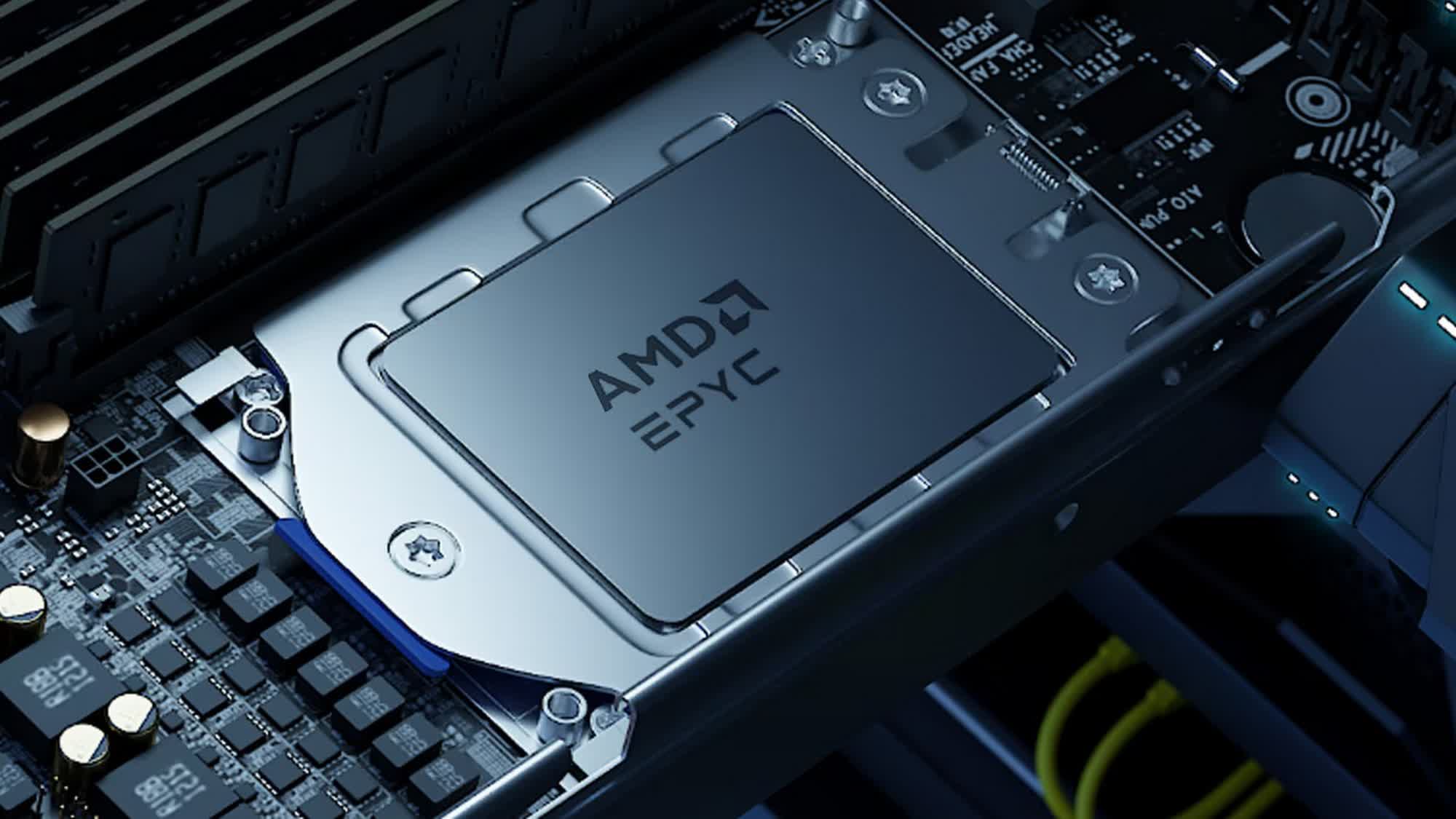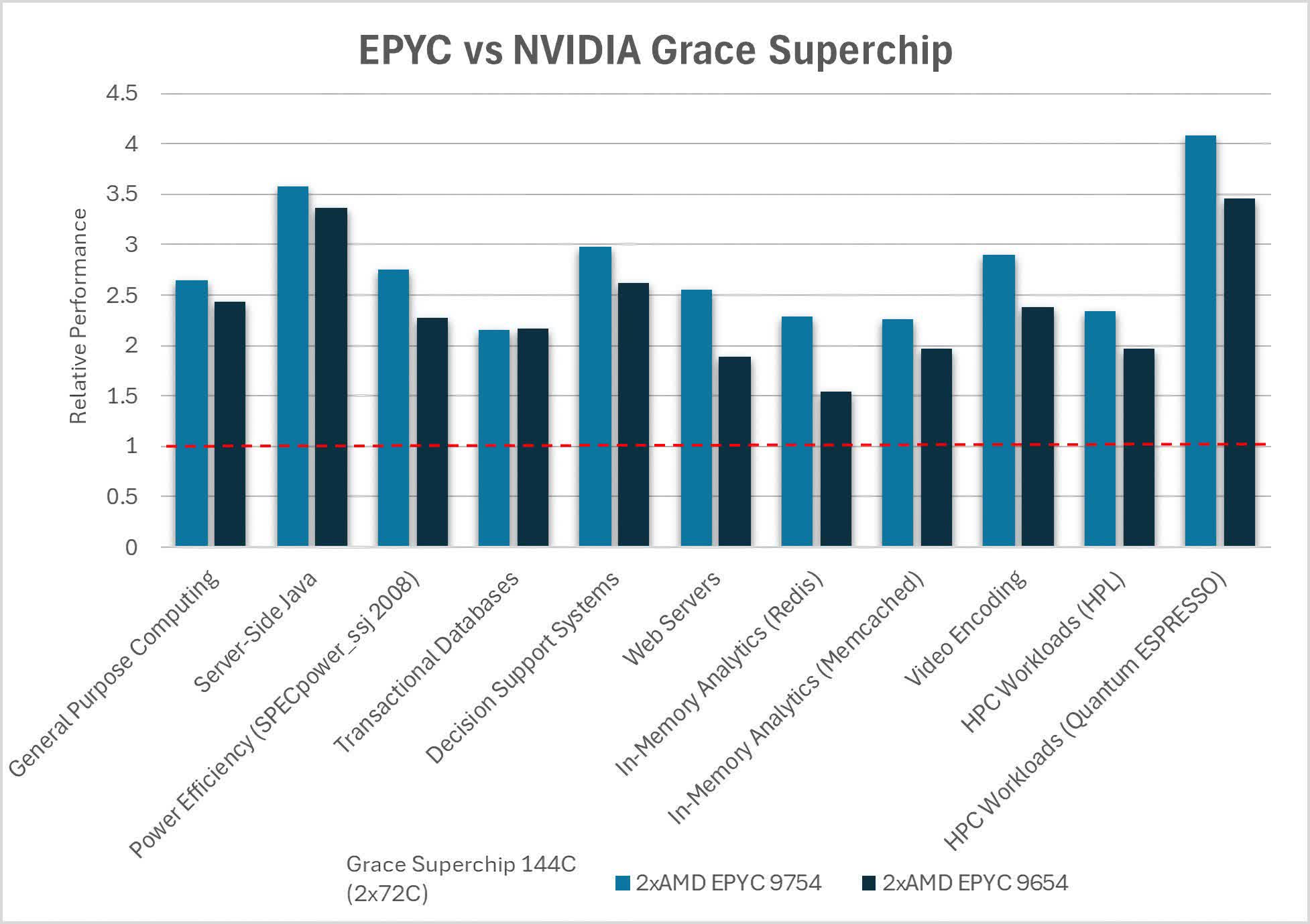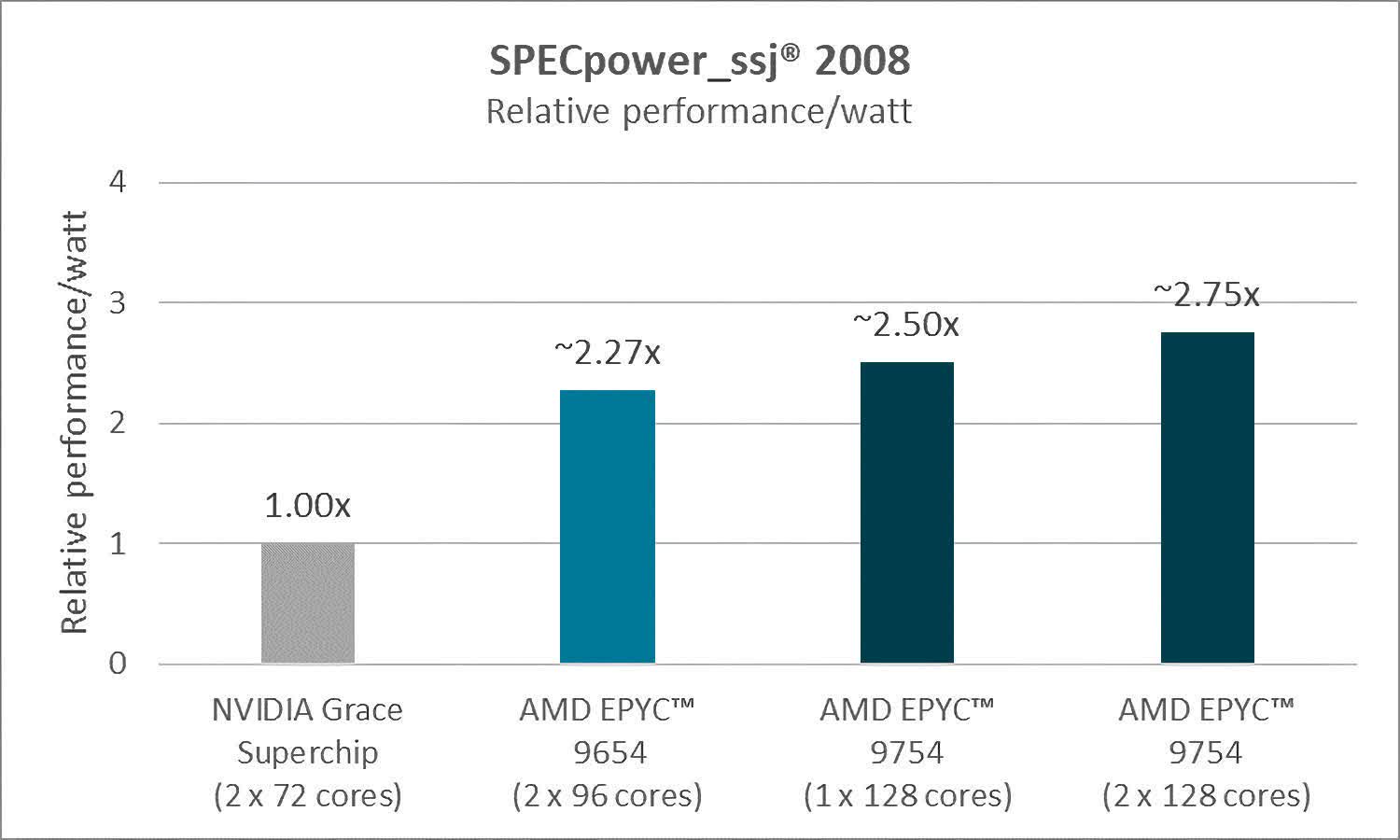What just happened? Nvidia is the undisputed champion in the AI space with its GPU-based accelerators. However, AMD is now pushing back, claiming it's the new leader in the data center segment with its Grace CPU Superchip. The company released a series of benchmarks showing that its Epyc Genoa x86 CPUs are much faster than Nvidia's Arm-based Grace Superchip across several critical workloads.

According to AMD, its Epyc Milan CPUs already offer power-packed performance for data centers, but its 4th-gen Epyc Genoa and Bergamo platforms up the ante beyond the reach of the competition. To prove its point, the company showcased a series of benchmarks "proving" the 4th-gen Epyc processors have a massive advantage against Nvidia's Grace CPU in terms of performance and efficiency.
First, the 128-core Epyc 9754 and the 96-core Epyc 9654 can deliver more than twice the performance of the 144-core Grace Superchip in various workloads, including server-side Java, transactional databases, decision support systems, and web servers. General-purpose computing, in-memory analytics (Redis and Memcached), video encoding, and high-performance computing (HPL and Quantum ESPRESSO) saw similar gains.
Red Team also provided a power usage benchmark, showing the Epyc 9654 to be 2.27x more power-efficient than the Grace Superchip in dual-channel configurations. Meanwhile, the Epyc 9754 offers a 2.5x better performance-to-watt ratio in single-socket setups than the Grace CPU, while in dual-socket mode, its efficiency reportedly increases to 2.75x.
At first glance, the results might suggest that the Epyc chips are the best choice for demanding, power-hungry applications. However, it is important to note that these results are based on in-house testing, so take them with a pinch of salt until corroborated by our upcoming reviews.
Meanwhile, Nvidia released comparable benchmarks to combat AMD's claims, and as you'd imagine, they look very different from the results provided by Team Red. According to Nvidia, the Grace CPU Superchip is up to 2.4x faster on server-side performance and 3x faster on data center throughput than a dual-socket Epyc 9654. On average, the Grace CPU is 1.5-2.0x faster across multiple tests.

